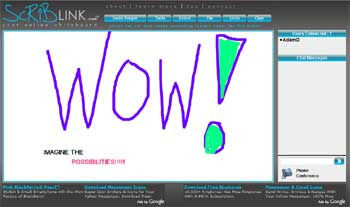Whether or not you
believe in the fat guy in the red suit, you do believe in the holiday season. Regardless of your religious affiliation, Christmas time (or the holiday season as retail capitalism would like to call it) has somehow infiltrated our very culture so much that other religions are scrambling to find relevance to it (in my opinion). I am reminded by the South Park song "It's hard to be a Jew on Christmas", and I laugh. Yet, I know that children of any religion are expecting presents for whatever reason can be squeezed out of the marketing machine.
Okay.. what the heck does this have to do with technology? Stay with me here; I promise I will do my best to make sense of this.
The day after Thanksgiving is called "Black Friday". Bananas of all ages and genders flock to their local shopping places, and they push, shove and jockey their way to the best bargains of the season that has just officially started hours before the stores usually open. Some live for this insanity. Being someone that dislikes... no make that absolutely loathes shopping malls during the rest of the year, let alone holiday time, Black Friday isn't even close to being a suitable option.
I remember when I first heard of people buying over the
Internet. Everyone was worried about stealing credit card information, stores that didn't exist etc. Consumer confidence was not all that great.
Oh my, how things have changed. Nowadays the market share of Internet
purchases is so strong that there is a day called "
Cyber Monday" that shows the first big day of online purchases (at the expense of employers!)
What does this have to do with anything? I challenge that as technology becomes more used, more
relevant and more accepted to the general community, it will become much more commonplace. The rate at which this has happened with commerce is staggering, but yet the rate at which the education system is transforming is not quite as quick. What must we do? Do we have to provide that level of safety, security and comfort to our teachers and administrators? How do we give them that warm, fuzzy feeling about emerging technology?
One thing that I have noticed about the Internet today (and web 2.0 tools in particular) is that they do not cater to the "coders" as they used to. Applications are much more user friendly and 'approachable' than they were years ago. The
Internet, once reserved for the power user super geek, is now home to countless students of all ages and people using it for many uses. So here we have something that reaches ages and tech familiarity of all levels, but how can we bring that comfort to our schools? I don't know.. I am just
wonderin..
Merry Microsoft or Mac to all... and to all a good night.
Happy holidays.


 Well, the new semester of T.E.A.M. has officially begun, and I had the pleasure of meeting Dr. Mark Weston, our new mentor. He challenged us with this notion of educational revolution, and asked if we believed it to be inevitable. Of course, I said yes. My philosophy is that our classrooms are true extensions of the world around us, therefore if the world is constantly changing so shall our classrooms. New social situations, economical environments, life skills, technologies, instructional models, facilities and our ever changing population make education an inheritantly dynamic setting.
Well, the new semester of T.E.A.M. has officially begun, and I had the pleasure of meeting Dr. Mark Weston, our new mentor. He challenged us with this notion of educational revolution, and asked if we believed it to be inevitable. Of course, I said yes. My philosophy is that our classrooms are true extensions of the world around us, therefore if the world is constantly changing so shall our classrooms. New social situations, economical environments, life skills, technologies, instructional models, facilities and our ever changing population make education an inheritantly dynamic setting.



